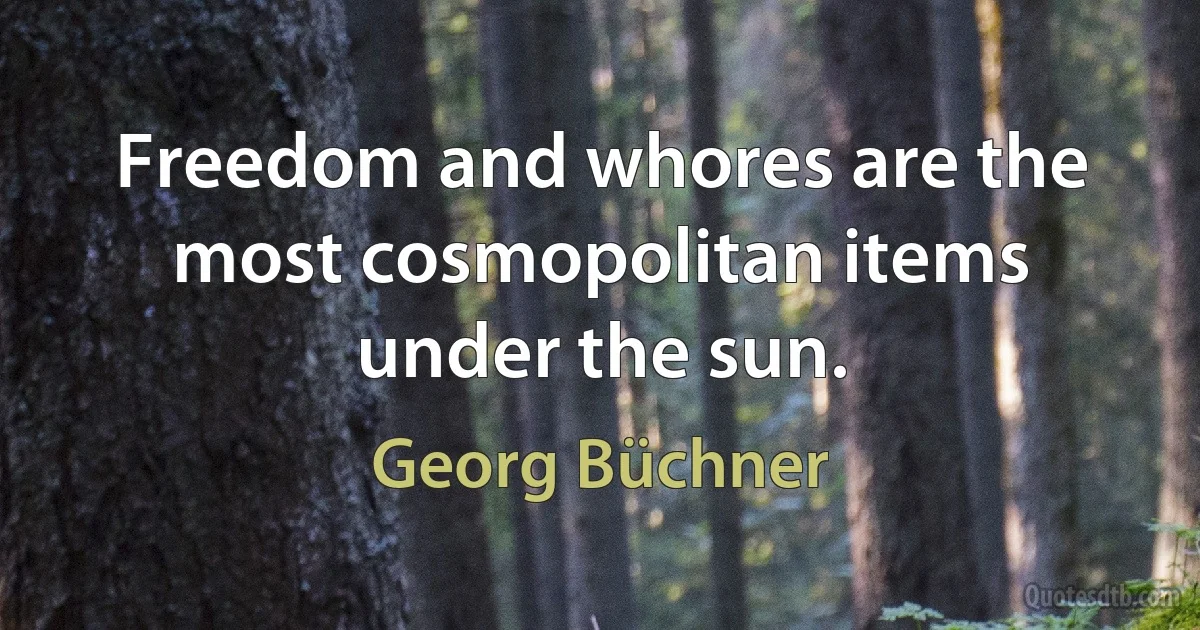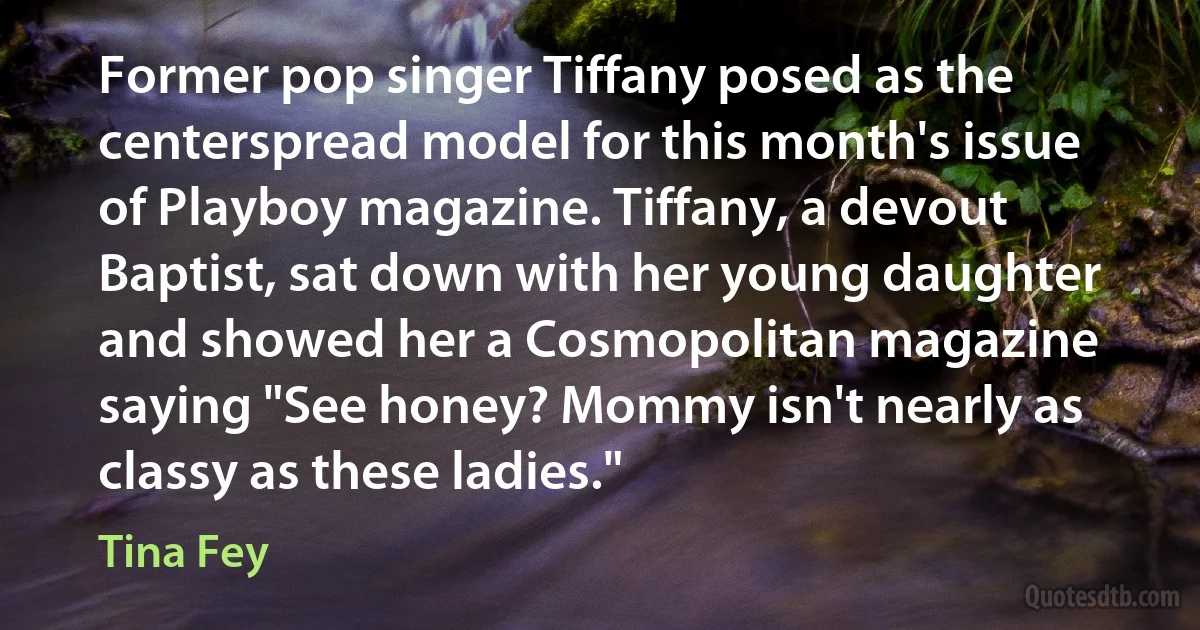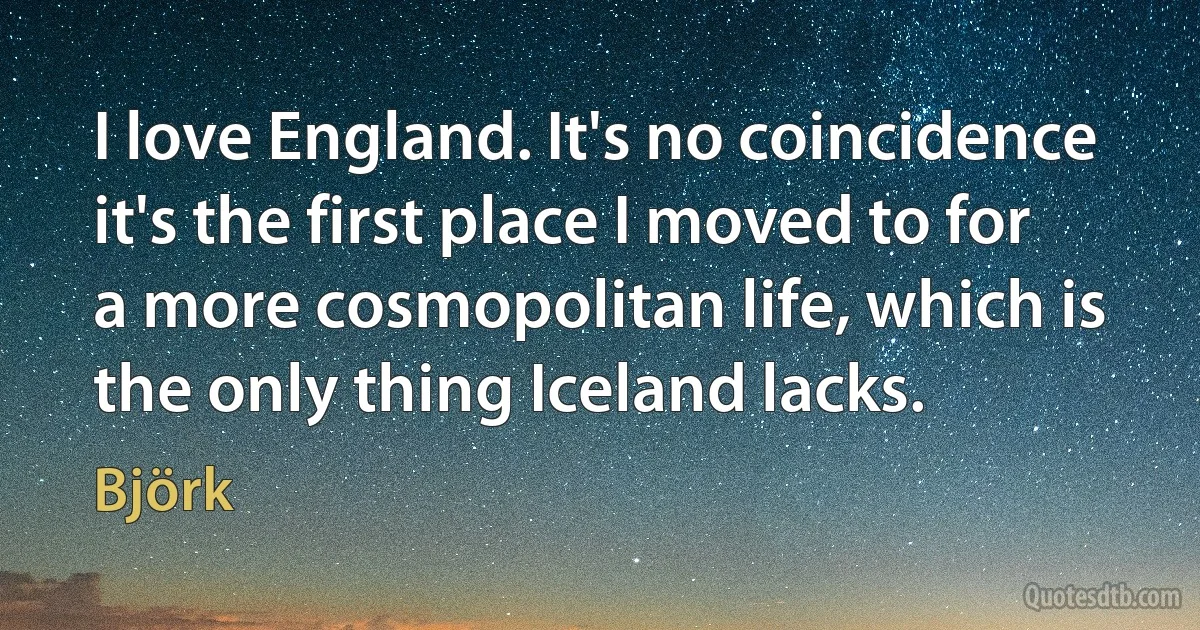Cosmopolitan Quotes
Jeffersonian isolationism expressed an essentially cosmopolitan spirit. The Jeffersonian was determined - even at the expense of separating himself from the rest of the globe, and even though he be charged with provincial selfishness - to preserve America as an uncontaminated laboratory.

Daniel J. Boorstin
Since the narrower or wider community of the peoples of the earth has developed so far that a violation of rights in one place is felt throughout the world, the idea of a cosmopolitan right is not fantastical, high-flown or exaggerated notion. It is a complement to the unwritten code of the civil and international law, necessary for the public rights of mankind in general and thus for the realization of perpetual peace.

Immanuel Kant
The darkness crumbles away.
It is the same old druid Time as ever,
Only a live thing leaps my hand,
A queer sardonic rat,
As I pull the parapet's poppy
To stick behind my ear.
Droll rat, they would shoot you if they knew
Your cosmopolitan sympathies.
Now you have touched this English hand
You will do the same to a German
Soon, no doubt, if it be your pleasure
To cross the sleeping green between.
It seems you inwardly grin as you pass
Strong eyes, fine limbs, haughty athletes,
Less chanced than you for life,
Bonds to the whims of murder,
Sprawled in the bowels of the earth,
The torn fields of France.
What do you see in our eyes
At the shrieking iron and flame
Hurled through still heavens?
What quaver--what heart aghast?
Poppies whose roots are in man's veins
Drop, and are ever dropping;
But mine in my ear is safe--
Just a little white with the dust.

Isaac Rosenberg
I do not for one minute believe that this election shows that London has been transformed overnight into a Conservative city but I do hope it does show that the Conservatives have changed into a party that can again be trusted after 30 years with the greatest, most cosmopolitan, multi-racial generous hearted city on earth in which there are huge and growing divisions between rich and poor.

Boris Johnson
Sexual intercourse is not intrinsically banal, though pop culture magazines like Esquire and Cosmopolitan would suggest that it is. It is intense, often desperate. The internal landscape is violent upheaval, a wild and ultimately cruel disregard of human individuality, a brazen, high-strung wanting that is absolute and imperishable, not attached to personality, no respecter of boundaries; ending not in sexual climax but in a human tragedy of failed relationships, vengeful bitterness in an aftermath of sexual heat, personality corroded by too much endurance of undesired, habitual intercourse, conflict, a wearing away of vitality in the numbness finally of habit or compulsion or the loneliness of separation.

Andrea Dworkin
It was a part of a budget which even three months had proved to be a mass of miscalculation; it was the pet scheme of a cosmopolitan school who love England little, and whom England loves less, whose sympathies are half-American and half-French; and it was the first application of a theory of combined taxation and reform, according to which the poor were exclusively to fix the revenue which the rich were exclusively to pay.

Robert Gascoyne-Cecil, 3rd Marquess of Salisbury
The whole idea of men creating perfect robot women for their own pleasure, it happens every day. The most "beautiful" women you see in public, none of them are for real. They're just men perpetuating their perverted stereotypes of women. Just the oldest story in the world. There's a penis on every page of Cosmopolitan magazine if you know where to look.

Chuck Palahniuk
I want to take poetry to walk other genres. I want poetry to walk through other genres. When I started writing, this was my main concern: get out of poetry. Let poetry walk the streets of New York. Make her cosmopolitan. See the world. Not in these estrofas, not in these stanzas, which are camisas de fuerza. I have to get out of poetry. I have to do what James Joyce did to the novel: he took the novel out of the novel...

Giannina Braschi
Rawls resorted to Hegel in his internal reflections on a constitutional state. On the plane of inter-state relations, Kant remained his philosopher of reference, as the theorist of conditions for a perpetual peace. So too for Habermas. But since Kant failed to envisage the necessary legal framework for a cosmopolitan order, as it started to take shape through the permanent institutions of the United Nations, Habermas, when he came to review the progress made since 1945, also looked towards the philosopher of objective idealism. Measured against the sombre background of the disasters of the first half of the twentieth century, he decided, ‘the World Spirit, as Hegel would have put it, has lurched forward'. As we have seen, Bobbio was responsible for the most pointed appeal to Hegel of all. In one sense, he was more entitled to do so.

Perry Anderson
Welcoming Hegel's idea of reconciliation as akin to his own enterprise of public reason, Rawls drew the line at his vision of the international realm as a domain of violence and anarchy, in which contention between sovereign states was bound to be regulated by war. Habermas's gesture enlisted Hegel, on the contrary, as a patron of cosmopolitan peace. The first could not square his Law of Peoples with the lawlessness of Hegel's states, the second could only enrol Hegel for pacific progress by turning him philosophically inside out. Bobbio, by contrast, could take the measure of Hegel's conception of world history, as a ruthless march of great powers in which successive might founds overarching right, and invoke it in all logic to justify his approval of American imperial violence. Law was born of force, and the maxim of the conqueror – prior in tempore, potior in jure.

Perry Anderson



